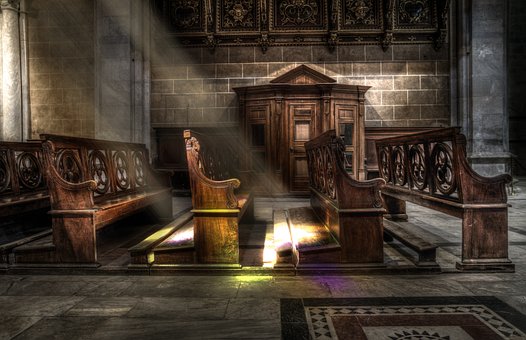There is talk of the absence of God and the loss of the sense of transcendence. The theologian Ann Loades, who has just died, attributed it to the idea of a disfigured God, uninteresting. Loades, emeritus professor of theology at Britain’s Durhmam University and at Saint Andrews in Scotland, argued that perhaps religious practices even distanced women from the sacred. Some women, tired and ignored, have historically decided to abandon religion. Others have created alternative groups, such as the Beguines at the beginning of the year, located in Belgium, where they basically cared for the sick and were nourished by a community spirituality, but outside the institution. A kind of religious without being. There is a multitude of feminist groups that consider that women have little room within religious structures.
Feminist theologians (Schüssler Fiorenza, Mary Daly, Rosemary Radford Ruether, Ursula King, Letty M. Russell…) are not all of the same pattern. Many are optimistic and see themselves capable of altering the symbolic, moral, theological, liturgical systems… and they maintain that to do so it is necessary to reformulate how God and religious experience are verbalized. They also defend that equality must be assumed and not continually feed narratives in which women are the ideal consensus generator, the faithful adviser, the magical assistant, the angel of the home and of any organization. Some believe that the Church can be renewed from within. Here we would include the World Union of Catholic Women’s Organizations (not Feminists).
Others propose renewing from the margins. Some believe that until the founding texts are read differently, nothing will change. Apart from the theoretical ones, there are groups that from experience want to try to live without contradictions the fact of being women and being believers. One of the most powerful was formed around the World Council of Churches in Geneva. Often these are Christian groups, but not a single denomination. If they are Catholic, they are ecumenical in spirit and include Christian people such as Evangelicals, Orthodox, etc. Women for dialogue was born in 1977 in Mexico, in Puebla, and they were pioneers. Many other groups have preceded them. The most recent and Catalan, Raise the Veu. The problem with these groups is that they are often perceived as a women’s issue.
It is not understood that it is a new way of living the Gospel, that it is precisely the search for authenticity that leads these women —and men who receive communion— to insist on this issue, that if it continues to be treated marginally, it does not advance. Loades was convinced that Christian feminism was the fire that would renew the Churchand not a fire that would burn.
Feminism seeks a change for the better, that does justice to women. In so many institutions, not only religious, feminism has entered as an enemy and has ended up as a useful reforming ally.
In a Church where some feel that it is cold, what is needed is to turn on the heating. And the fire that purifies from the experience of women, a fire that warms without destroying, can be a good ally.

